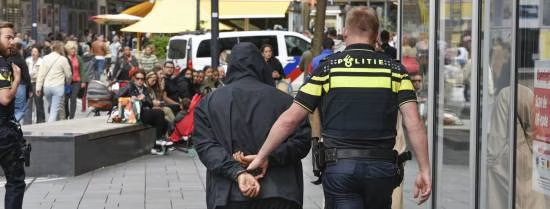Why do people commit crimes? Are people born criminals, or is crime a deliberate choice? Professor Olivier Marie is a crime economist at Erasmus School of Economics and in a lecture for The University of the Netherlands he explains the basic principles that lead to the decision of committing a crime (or not).
From economic perspective, people make most decisions rationally after a cost-benefit analysis – also when it comes to committing a crime. Whether you commit a crime or not is influenced by four elements: the legal profit, the illegal profit, the chance of being caught and the severity of the punishment. Only one factor that changes can change the entire decision.
“Studying the separate elements is interesting to find out which policy works best to reduce crime. In reality, it is never just one factor that drives an individual, but about the interaction between these elements”, Marie explains. And there is a fifth element that influences all previous four: individual perception. The size of a parking fine, for instance, can be less of a obstacle for someone with a good income than it would be for a poor person.
Finding the right policy
Talking about committing a crime as a purely individual decision can seem harsh. After all, some people are in situations that are so bad that they almost have no choice. That is true, Marie says. “That is exactly what the model tries to discover. Would the same individual with a better job, education or good life opportunities from the start not have turned away from crime? And what can we do to best achieve this?”
“The cost-benefit approach really means that almost no one is predestined to commit crime. And by finding the right policy to change incentives, most will choose a lawful life”, he describes the societal impact of his field of research.

- Professor
- Related content

